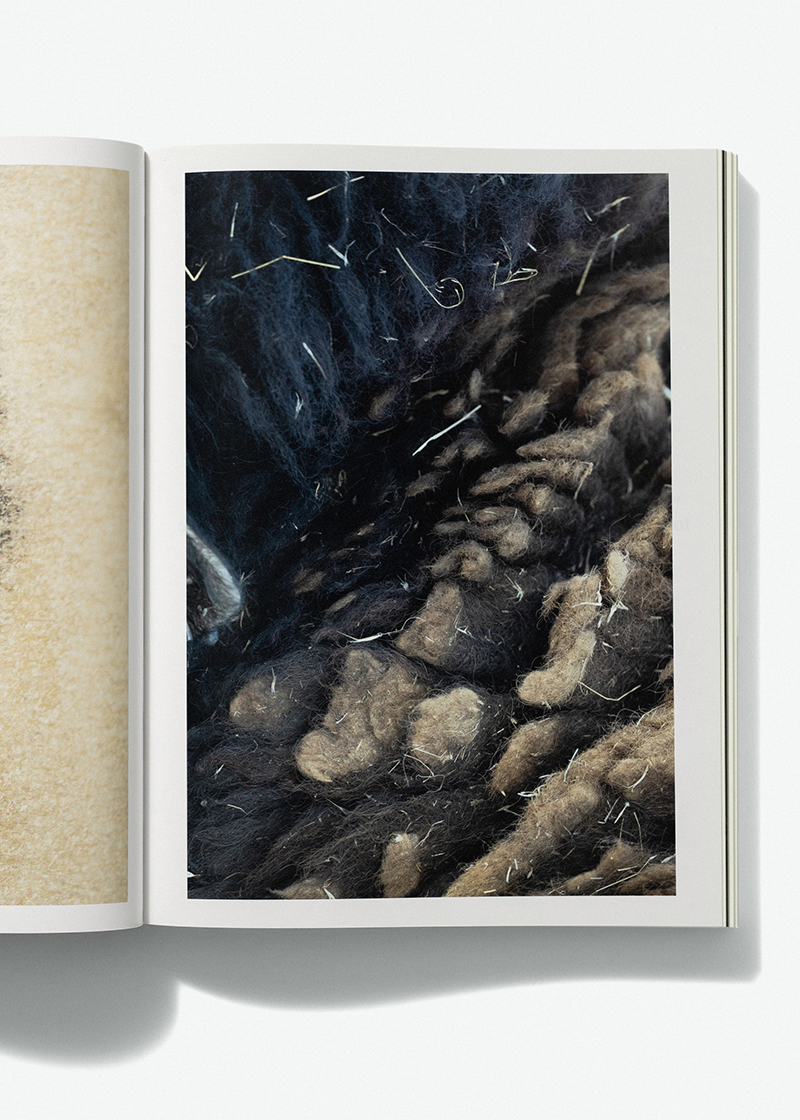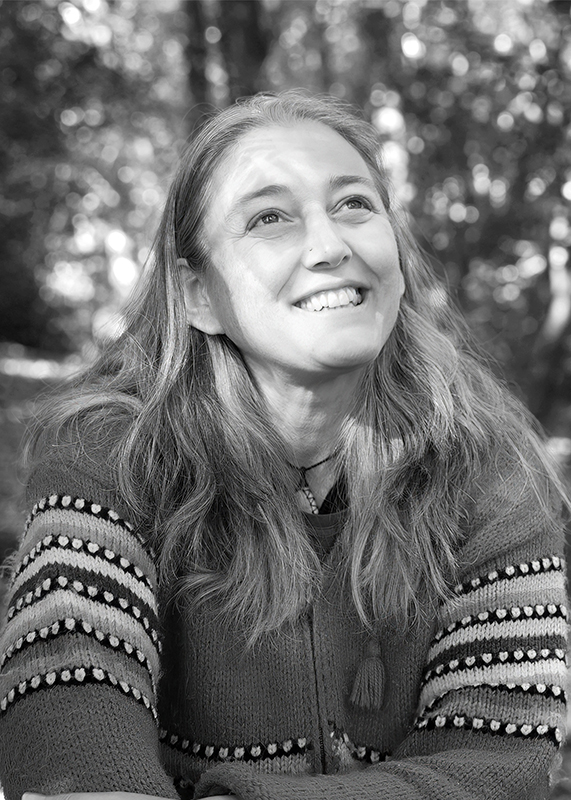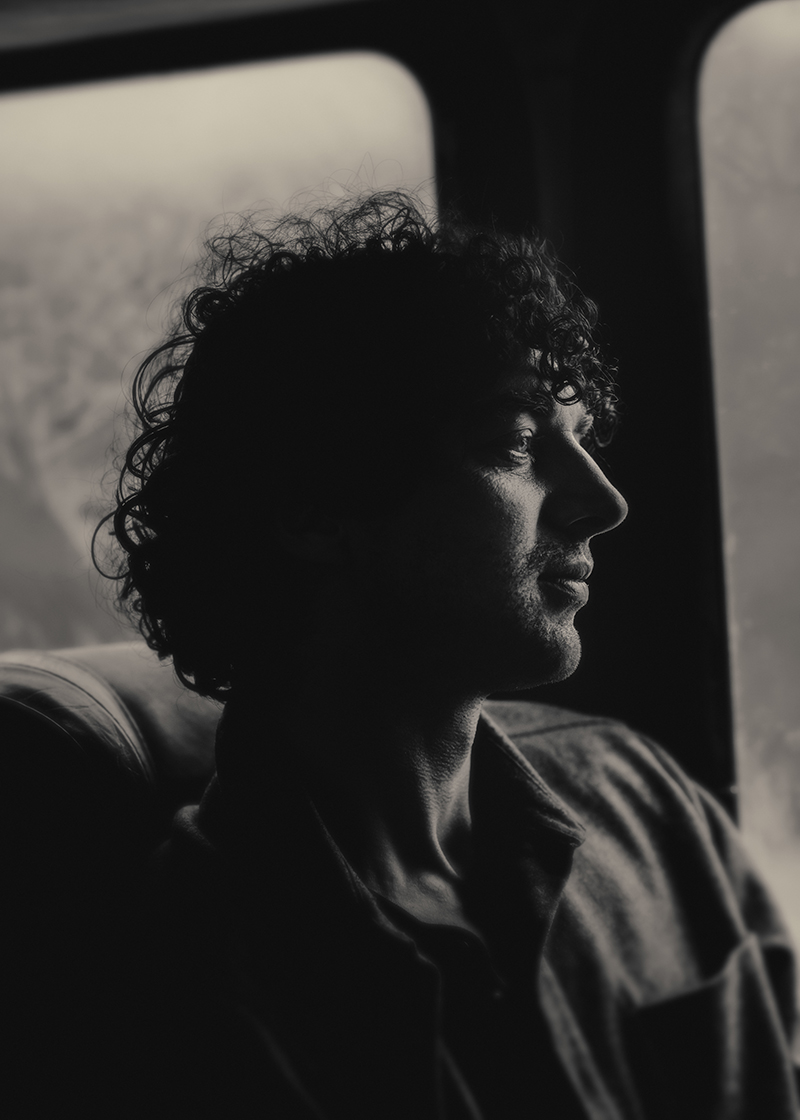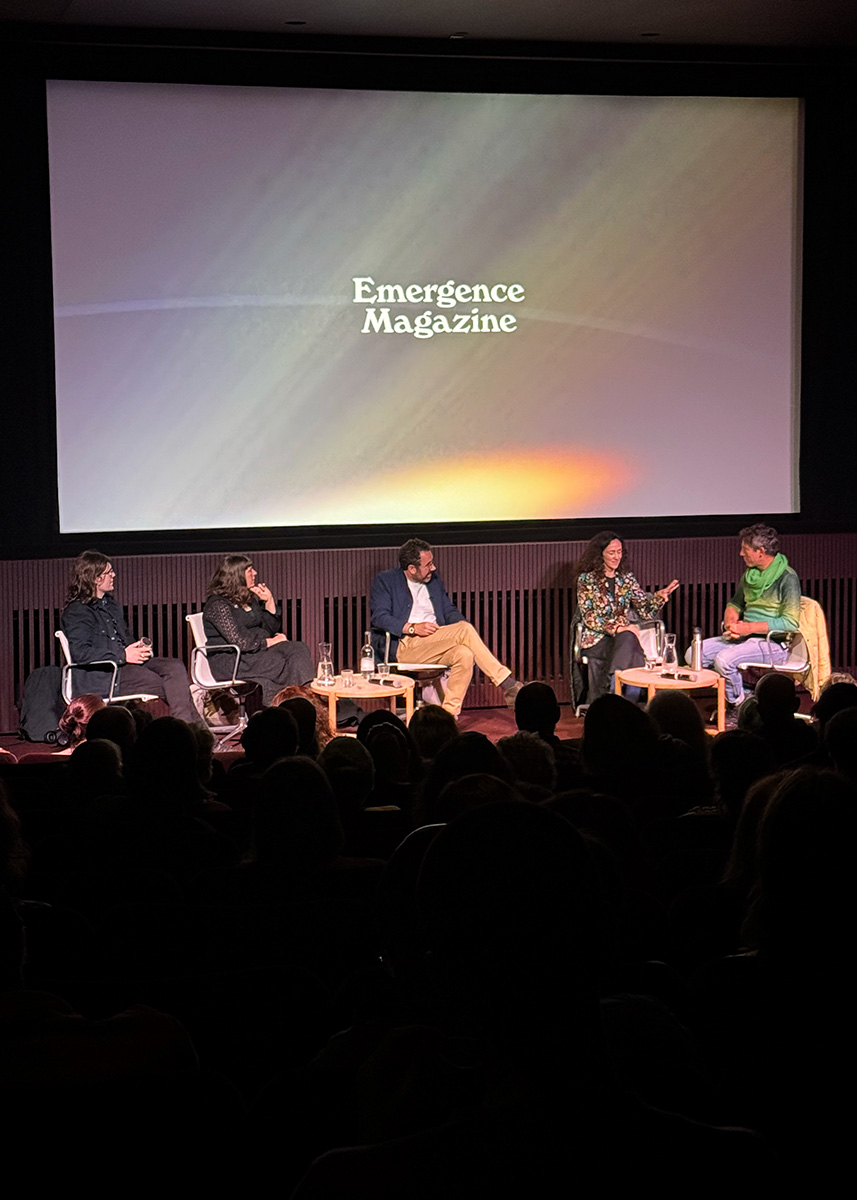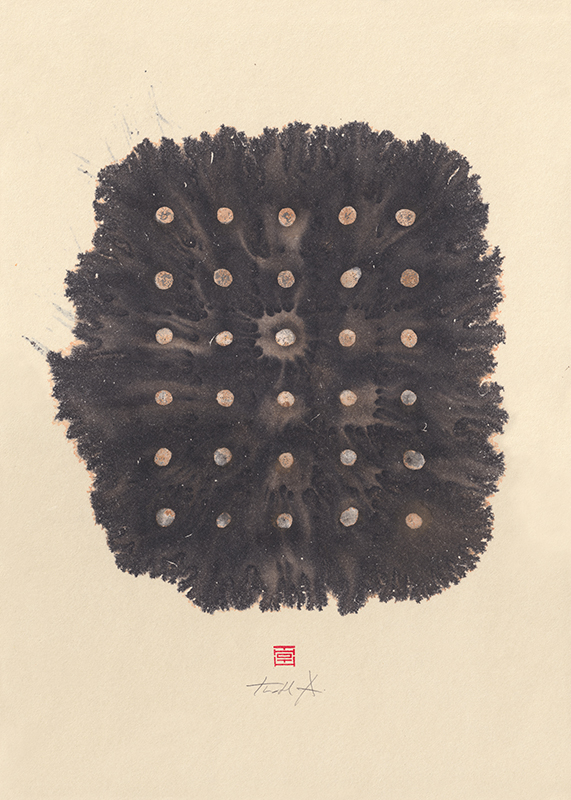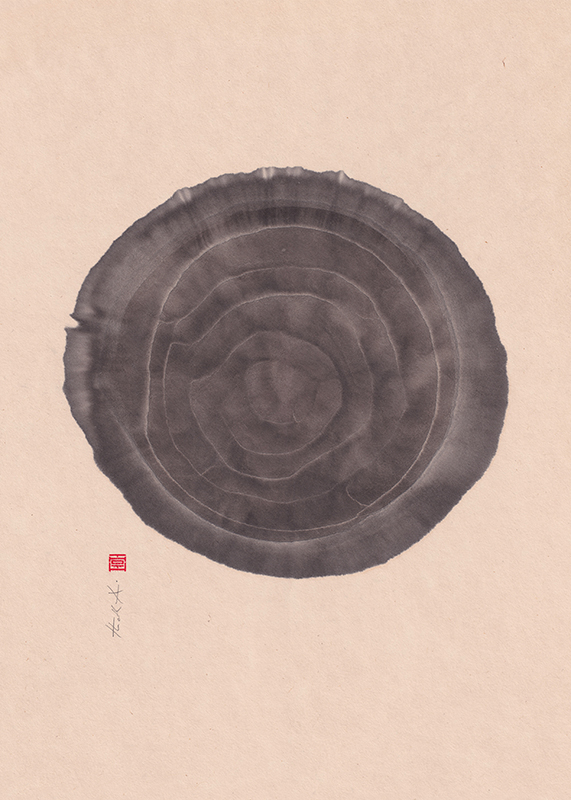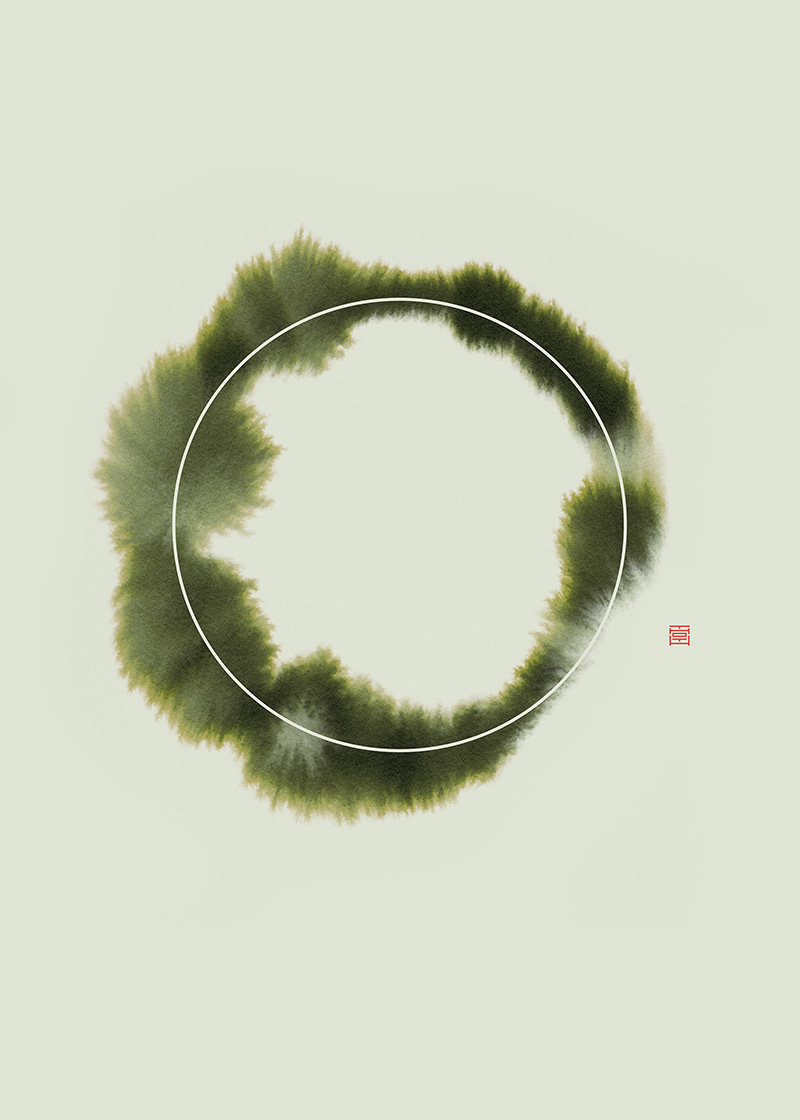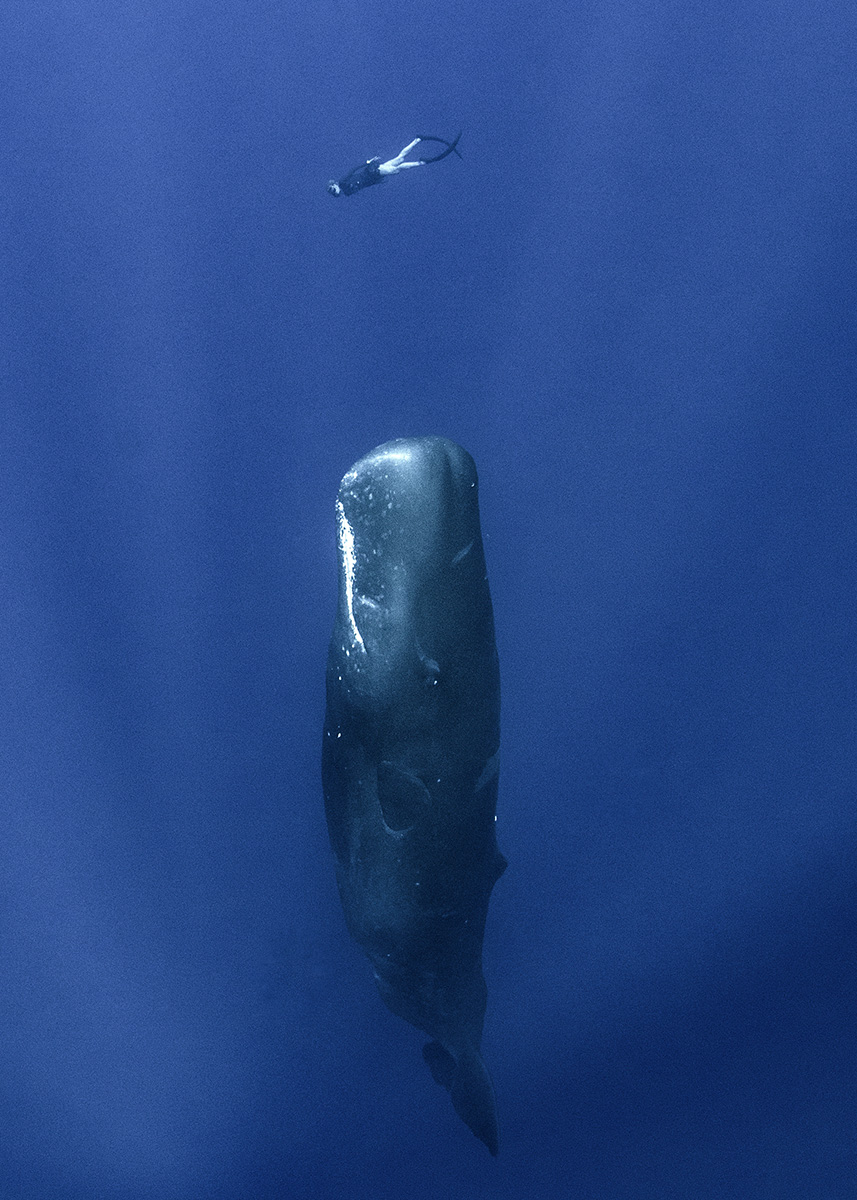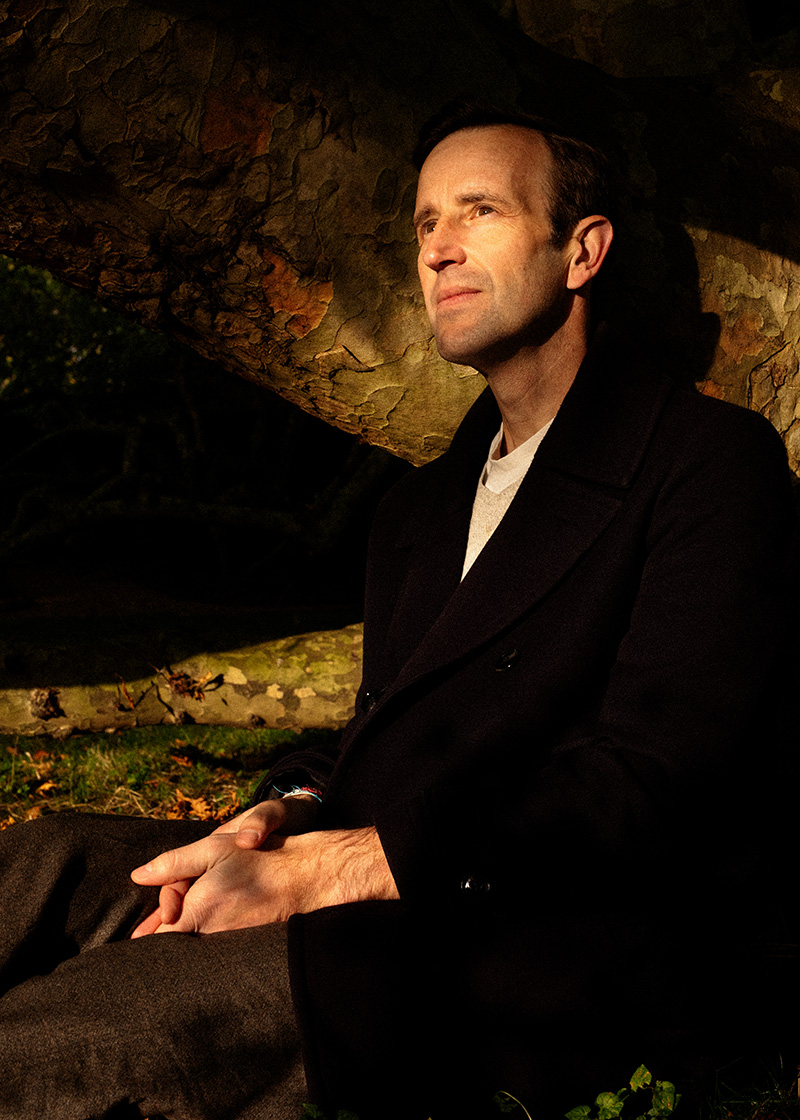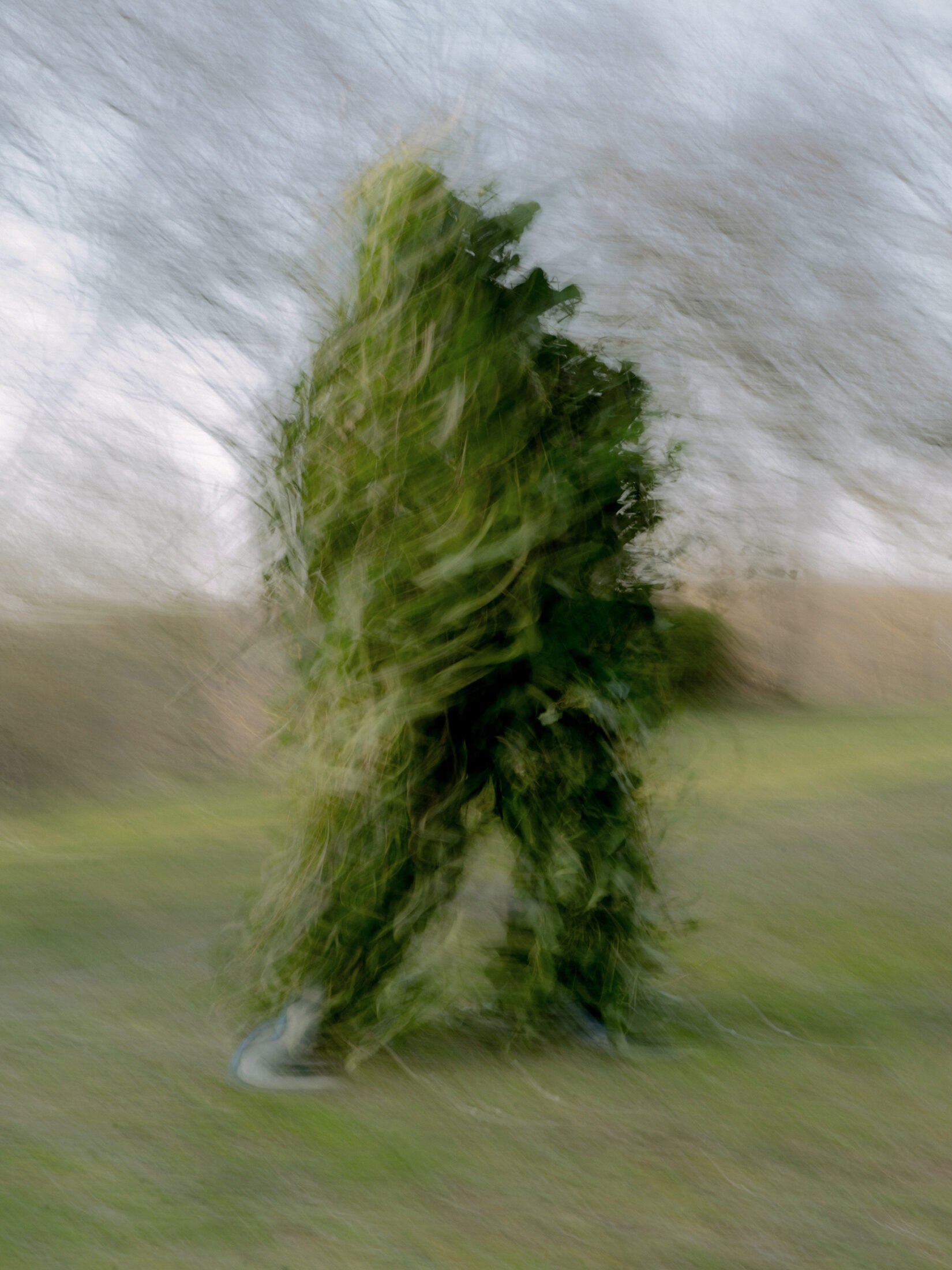
Fee-Gloria Grönemeyer / Connected Archives
The Radical Intimacy of Spiritual Ecology
Emmanuel Vaughan-Lee is an author, Emmy- and Peabody Award–nominated filmmaker, and a Sufi teacher. He has directed more than twenty documentary films, including Taste of the Land, The Last Ice Age, Aloha Āina, The Nightingale’s Song, Earthrise, Sanctuaries of Silence, and Elemental, among others. His films have been screened at New York Film Festival, Tribeca Film Festival, SXSW, and Hot Docs, exhibited at the Smithsonian Museum and London’s Barbican, and featured on PBS POV, National Geographic, The New Yorker, and The New York Times Op-Docs. His new book, Remembering Earth: A Spiritual Ecology, is forthcoming from Shambhala in summer 2026. He is the founder, podcast host, and executive editor of Emergence Magazine.
Given at St. Ethelburga’s Centre for Reconciliation and Peace in London in November 2024, this talk by Emmanuel Vaughan-Lee concludes a series on the theme of spiritual ecology. It explores how an embodied practice of spiritual ecology is a radical act amid a culture that has forgotten the sacred nature of our relationship with the Earth. A remembrance of this intimate connection is the spiritual responsibility of our time, and when our hearts recognize and hold this reality, we can keep alive an essential connection through our darkening days and offer a practice of love to the suffering Earth.
Transcript
This evening I would like to speak about the practice of spiritual ecology, the individual nature of this practice, and the contribution it offers, and how this is an act that is radical and one that is a spiritual responsibility for those who partake in it. Spiritual ecology can be thought of as many things, and I’d like to define it for the purpose of this talk, quite specifically.
The Earth is a divine being imbued with spirit. It includes us. We are part of this relationship that She holds. The Earth is a divine being imbued with spirit that includes us. And this spirit has many names. One can think of it as an energy, one can think of it as love, as I do. For me, love is the essence at the heart of all things. It is the spirit. But this definition only makes sense, at least to me, when one engages with it, not as an ideal, not as a concept, but as a lived experience, a relationship; a relationship where spirit meets spirit, where matter and spirit come together. Spiritual ecology, where our home—this great planet that is a being, that is alive, that is animate—is recognized for what She is: a spiritual being. Because for me it is not enough to say that we must respect the Earth. That the Earth is even sacred is not enough. We must understand that the Earth is a divine being filled with spirit that demands our engagement. It cannot remain a philosophy or an idea, because then it is something to look to from a distance versus to invite, and be invited by, into a space—because She is a space. And this demands our relationship, and it is intimate, just as the space in this room is intimate.
If it is a philosophy, if it is an idea, if it is a concept, it is not intimate. It remains safe. We can judge it, we can criticize it, and it stands at arm’s length. But She is not at arm’s length. She is here all around us. She is in us. She is us. Just as She is in every rock and every tree and every cloud and every breath of wind. She is everywhere. And the denial of this—because we have denied this truth for far too long—lies at the heart of the crisis that we’re in. It is not just enough to say the crisis is a crisis of separation, where we have separated ourselves from the living Earth and said we are above that and created a human-centric paradigm that places us firmly in control. It is not enough to say that, because we have denied the essential truth of this reality, this earthly reality that is imbued with spirit.
The spirit flows as a whole and it flows through every single form. It is the lifeblood of creation. We must engage with this so that we can embody something that we have sadly forgotten in the denial of what is. We must make this space part of us again and bring Her into our hearts, into our bodies, even into our minds. And to me that is part of the practice of spiritual ecology. One might say it as an inner practice. But all things that emerge will stem from that inner relationship if we allow it to have its way with us as individuals, each seeking out what lies at the heart of this Earth. That spirit, it must be lived, it must be embodied; otherwise it remains far away, another idea, another set of goals to reconnect with the Earth, to again find a way to live in balance. Platitudes. When what is asked is to return to something fundamental, something ancient, something true, something that exists inside of us. Because it does not need to be found. It does not need to be learned. Rather it needs to be remembered. It needs to be remembered.
When I was here in the summer, I gave a talk in this room about this ancient memory that exists inside of us. This stamp, if you will, that we all enter this world with. This stamp that remembers that we are part of this divine being. That we are connected to Her through spirit and through matter. It is part of what we inherit as human beings, because it is part of the story of what a human being is. We are of this Earth. And for the majority of our history, it was not a memory. It was a lived reality. It was an experience. It was the foundation from which cultures and religions, civilizations even, grew from: this memory where spirit and matter flowed seamlessly, this memory of our relationship with the Earth as She is.
And this memory, you see, it comes alive when we are willing to hear, to hear Her speak to us, to hear the living Earth speak to us—because She speaks first. And this is important. We are not inviting Her. The Earth is always inviting us. The memory is awoken through an invitation that makes itself known in so many ways, speaking to each of us individually. Remember me. Remember me. Remember me. It can be a fleeting faint whisper that we barely hear, that we barely catch, or it can be a roar. Remember me. And this voice makes Herself known through awe and wonder and majesty and beauty and magic and also through pain and sorrow and grief and suffering. Remember me. And in that cry asking for recognition, She cries out and says, what have you done? And She speaks to us each differently, because She knows we are individuals, we have a unique heart that She calls upon. She knows that everything in creation is incredible. Multiplicity is unique and must be spoken to uniquely. And this reminder of this relationship, which comes from this invitation that She offers to us—it is unique. That is why it feels so potent when we hear it. Because it is intimate, as if someone is speaking to your heart, to your very soul. Remember me. Remember me. Remember me.
Sometimes She has to say it over and over and over again. In truth, I think that is what mostly happens. It can come on a clear day alone, on an empty beach, or on the crowded London streets. Remember me. Remember me. And if we have the courage to respond, to engage, to pick up that thread that was woven long ago into our very being, into the DNA and the fabric of our existence as human beings; if we have the courage to say, I remember you, I remember you, then a journey begins, a real practice of spiritual ecology—not words on a page, not a philosophy, not a concept, not an idea, but something very different. Something that matters more than anything else. A relationship. Because that’s what She wants more than anything else, is a relationship. That’s what She’s calling out for when She says: Remember me. Remember that we are kin. Remember that we are in a relationship. Will you be in that space with me again? She says.
But to be in a relationship is not an easy thing. It’s not safe; it’s demanding. And it pulls at the very core of our being. Because when this memory comes alive, it comes alive in the heart. Our mind will be mostly confused, I think. Our body—it has a better sensibility about these things. But it is really in the heart that we feel this, which is why it can hurt so very much when we realize what we have done. And while we may not be culpable directly, we as a species are; and this is an invitation that is both individual—so unique—but it is also the whole. And we feel that. What have we done as a species? What have we allowed to unfold? And it is not something that purely challenges the mind. It is felt in the heart. Because in that memory, you see, that is stamped into our very DNA, that was woven long ago at the beginning, when spirit and matter flowed seamlessly together, is love. In that memory is the memory of a love that existed. A primordial love, a love that cannot be taken away. It cannot be taken away. We can veil it, we can deny it, we can build walls in front of it—and we have done all of those things; we can twist it, we can distort it—the list goes on—but we cannot take it away.
And if we have the courage to let it emerge, then something very different starts to happen inside of us, because we are no longer alone in the same way. We are with Her, this Earth, this living, breathing Earth and the spirit that is imbued in every aspect of Her being. And then the practice of fully immersing ourselves in this experience—because it is that: It is an experience. It is a state of being. It is a space. It is all encompassing. We begin the journey to discover once again what it means to be in relationship. And we do this as individuals, because even if we follow a prescribed set of rituals or ceremonies or practices or invitations, what they offer when they open us—because that is what they do, they open us. Any ritual, any ceremony, any incantation, it opens us. It opens our hearts, it opens our bodies. The good ones even open your minds. But they open something individual. And our response is individual. It cannot be claimed by a religion or a spiritual tradition or a culture. It is individual.
And this is so important because this is also how the nature of existence functions. Each individual being in creation is like a node. A node that is tied to the source of its existence in this reality. That was what was woven into our DNA—not just the memory of spirit and matter, not just the memory that we are the Earth. It’s the memory of the individual nature of that experience. And when we begin to recognize this, then this individual light comes alive. It is as if you are looking at a mycelial network, because that is what it is like: all these connections, all these nodes, all these relationships intermingling, and they are suddenly beginning to be filled with light. Because that light is spirit. It becomes alive. We are not just physical beings; She is not just a physical being. And that node is individual. We cannot remember Her like the person to our left or to our right, like our mother or our father. We remember it as who we are. An individual imprint of creation manifest in this reality. Because the fabric of existence is like that mycelial network, like Indra’s net—the metaphors and examples, they runeth over. Because this is not new, the understanding of the fabric of existence, the fabric of existence that we were woven into, that we are a part of.
Those nodes, the individual nature of our relationship, they come alive and they offer something. It is as if each one of those nodes is a note, maybe even a song, a note or a song that comes into being and remembers Her as only we can, as a unique imprint of Her. And when we as individuals engage this dance, this space, this relationship, this intimacy, this knowing, this ancient, ancient knowing that demands to be heard, it is present.
And our responsibility is to learn how to sing that song, learn how to make that note heard, so that our contribution allows those nodes to exist as they really are: individual spirits flowing amongst each other within the whole of creation, within the whole of creation. And this is a practice—not a practice of learning, a practice of remembering, a practice of repetition, a practice of attentiveness, a practice of caring, and most of all, a practice of love. Because even when this ancient memory is awoken in us, we are faced with so many obstacles. Even when something so true comes calling: Remember me. Remember me. And it hits us and it touches us. And our hearts come alive with this ancient memory. So easily can it be muffled. Because the world is noisy and the world is loud, and it does not want to recognize Her. It does not want to remember Her. It prefers the sound of its own voice. It prefers its own image in the mirror. It is not easy. But what is easy that is worthwhile? That I do not know.
It’s like for a mystic, one thinks the moment of awakening is the most powerful moment. And maybe that is true. To see something as it really is; to hear Her as She calls your name through the breath of wind or the cry of Her pain. But it is not the awakening that is the most transformational part of the process. That is just the beginning. That is the invitation. The transformation unfolds through the day in and day out of one’s attention, of one’s offering. That’s what makes it a practice. One doesn’t just awaken or remember, and then you’re done. The story begins again. And it requires every part of our being, so that the love that is awoken in our hearts grows and grows and grows; so it is a constant presence, so that She, this living Earth, is a constant presence. So that we hear those whispers everywhere, because it is through the day in, the day out—just as the sun rises and the sun sets—of greeting, of offering, of remembering Her that that love goes deeper and deeper like a spiral into the very core of our being. Like a spiral that is the very core of our being. It drills down inside of us and then it is always with us. But we have to have courage. We have to have persistence. Because all around us we are gripped by a world of forgetfulness. And even the best intentions, they can so easily go awry. So easily can we fall back asleep. And those whispers of remembrance, they fall on deaf ears. We can’t hear anything.
And what is interesting is that the deeper we go on this journey, the more we are able to offer our love, offer our attention, practice remembrance. Because She says: Remember me. Remember me. And you say, I remember you. Because all prayer, it really is one form of that—of remembrance. Because even if you are offering thanks or gratitude or asking for something, you acknowledge there is a presence. It doesn’t matter what you are acknowledging. A presence. So the underlying premise of all of those exchanges through prayer or praise is remembrance. No matter what form it takes, it is remembrance.
Remember me. Remember me.
I remember you.
This affirmation of the nature of existence. And just like the node is unique, it has our fingerprint all over it. Just like the individual nature of the song that we can sing to Her, just like that song, our prayer is an intimate conversation. It’s my favorite description of prayer: an intimate conversation, an intimate relationship, a unique relationship unlike anyone else’s. Shh, I am speaking to Her. It’s just between you and me. If you’ve ever overheard a child speak like that when they are talking to a tree or to God, it’s just them. This intimate exchange, this unique intimate exchange of an individual node speaking to its source. And this practice of remembrance, of offering, of praise, of prayer, it also reveals the other side of that relationship more and more. Because at first it’s whispers that we hear, but then we start to understand more and see more and hear more.
One of my favorite stories of a Sufi sheikh, Najm al-Din Kubra, is about the nature of what his remembrance revealed. And the deeper that he could go into prayer, the more he could hear all around him. Until one night it culminated, and the realization that every form of existence, from the fishes in the river to the birds in the sky to the rocks at the shore—they were all singing their own songs of remembrance. They were all praising the Creator. Because this nature of this practice, this nature of this relationship, it is reciprocal. It is not a one-sided conversation. It is not a one-sided exchange. It is reciprocal. The more that we offer, the deeper that the love we have inside of ourselves grows, the more that we can hear. Now what we hear isn’t always sweet nothings. Sometimes it is the cry of Her pain. And more often than not, in the times that we are in, that is what you hear. But you hear it with a different set of ears than you did the first time when She came calling. Because now what was an invitation to invoke a memory has become a lived experience. It is no longer a whisper. It is a cry.
And what do we do when we hear the depths of Her suffering? We offer our remembrance again and again and again. Forgive me, forgive me, forgive me. They know not what they do. But I am here with you, and I offer myself to you, as an individual wanting nothing else than to seek the source and honor that source and honor the nature of our relationship.
And when this reciprocal relationship—it is a cycle really—when it is present, there is a different quality of being that exists, a different vibration. Because your note is met with Her note; your song and Her song, they are coexisting. This is where connection becomes communion. And what was a fleeting experience becomes an embodied one. And that is what is asked of us. To have the courage to not just offer a fleeting connection, but to commit to communion and what that takes. And not for our sake but for Hers. Because so easily we can take in and we can take in and we can take in what She offers us and bask in it. And our whole culture is built around this premise of taking and taking and taking and not knowing enough—when enough is enough. It takes, it takes, it takes.
Because even to walk in a forest and bask in the beauty and the space and the energy—what the trees gracefully give—and to feel better, to feel that you can breathe, to take that and not offer in response is the same as the extreme forms of taking that we see all around us, at least on a foundational fundamental level. Because it is the same. She gives and we take; and we do not offer in exchange, in response. Because the nature of existence, the nature of this Earth, is built on cycles, cycles of reciprocity and cycles of exchange. We see that in the physical world and it functions the same way in the spiritual world. And if spirit and matter is going to come together again, then we have to return to this understanding of the reciprocal nature of existence and again have the courage to stand up in a culture that is just taking, that does not know the word “enough,” and to offer.
And there are so many ways to offer, and there are practical ways to offer, and there are inner ways of offering, just like praise and prayer. There is no shortage. But where does it come from in us? Where does it come from in us? Because it must come from what is real and what this memory awakens is something that is real. And if we engage with it, then we engage with it from a part of ourself that is real. And this love that comes alive in us that is that spirit that is imbued in everything, it is real. It is real.
And you see, that is where spirit and matter really come together—when the real inside of us, the spiritual nature of our being, engages with the spiritual nature of Her being as a whole and as the multiplicity. And then the weaving together of the worlds, of spirit and matter, it flows. And if this crisis that we are experiencing is going to find, I won’t say a solution, but ground again—because that is what it is asking of us: to find solid ground, to find something that is real, to again return to the most foundational essence of existence in this reality, in this Earth, which is that shared relationship of spirit based on love that exists between us. That is what we must do again if we are going to face what is unfolding, because from that anything can be built. But if it is not based on that, then it is just a house of cards. And we have been building houses of cards, atop of houses of cards, atop of houses of cards.
And what is being asked is to go to the ground, to again remember who we are as human beings and what our responsibility is, because there is a great responsibility here to, again, remember who She is, to respond and offer ourselves and commit to that, day in, day out, regardless of how we feel. Regardless of how we feel. Because She doesn’t care how She feels. She keeps on giving and giving and giving and giving regardless. And if we are going to acknowledge the reciprocal nature of existence, then we have to model Her. That is why systems of protocol were developed all around the world, systems of practice and protocol. No matter what, at this time and this day, in this season, in this moment, these prayers, these offerings—so that that ground would never go away, that core elemental understanding or the relationship that we share, it would never go away.
Now we can’t go back to that world here. If you are part of a culture that has an intact tradition that knows how to function in relationship with the sacred nature of creation, that knows that She is a divine being filled with spirit, and has systems and protocols and practices designed to honor that and keep everything in balance, then you have a right to participate in that. But if you are not from that culture, you do not have that right. And instead you have to find a different way. We have to find a different way. And it will be individual. And it will also take shape and form around existing models and new ones.
To me, I think the future will reveal a whole new way that a culture that has forgotten this fundamental truth can again be in relationship in a way that can hold it as it needs to be held. Because the individual relationship—the coming to know this divine being that brings you into relationship, that reminds you on so many levels of what once was—that is really yours. It doesn’t necessarily fit within a system. I’m a Sufi, so I do it within the context of my relationship with God. But you don’t have to be a Sufi or a Buddhist or a Christian. It doesn’t matter. This transcends any form.
And so how will these practices and protocols come into existence? That is a question I hold. But until then, those of us who have awoken to the reality of the world as it is and the forgetfulness of the sacred nature of creation—we have a responsibility. If we’ve heard Her voice, or if we want to, we have a responsibility. We cannot wait for systems and protocols and practices to form around culture, to then invite us to participate. No, we cannot wait. We must engage now so that a bridge between now and the future can be made. Because what is held inside a heart that has woken up to the reality of the nature of existence, of what this living Earth is in our relationship to Her—what a heart can hold is a very powerful thing. And it can keep something alive: not alive in a latent memory, but alive in an embodied one, in a lived one, in a fully conscious one. So that that node that is you, that is tied to Her, shines in these dark times that we are in. And to me that is a radical act: to commit to that relationship. Not for our sake, for Her sake. In the times we are in, when there is no reflection around us. We are like this church, surrounded by towers of industry and capitalism and greed that are so tall, they shade out the sun.
To do this, to commit to remembering Her, to deepening that practice so it becomes a lived, embodied experience—that is a radical act when there is no reflection around you, when the dominant culture is in denial. But this radical act is not in opposition to these towers of industry, these towers of greed, these towers of forgetfulness. It is a radical act because it is an affirmation, an affirmation of the true nature of the relationship between a human being and this great Earth that we are a part of, that we are. It is an affirmation of the spirit that is imbued in all things. It is an affirmation that we have an intimate relationship with our home, with our source, in this reality. It is an affirmation of what it means to be a human being.
[clock strikes]
Time’s up.
